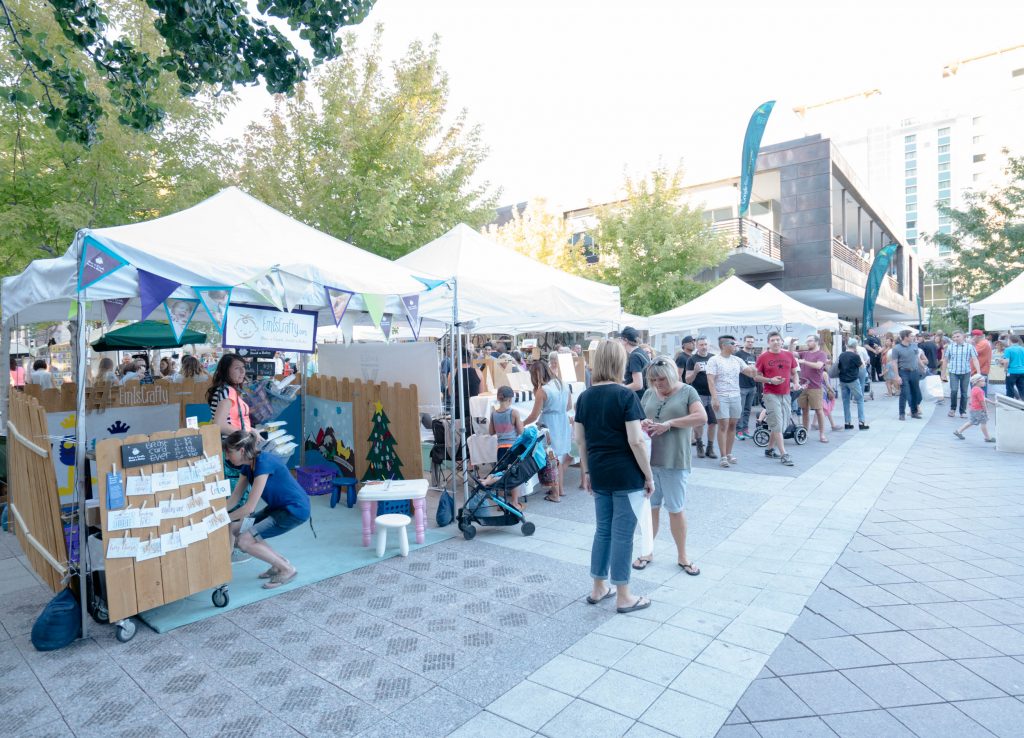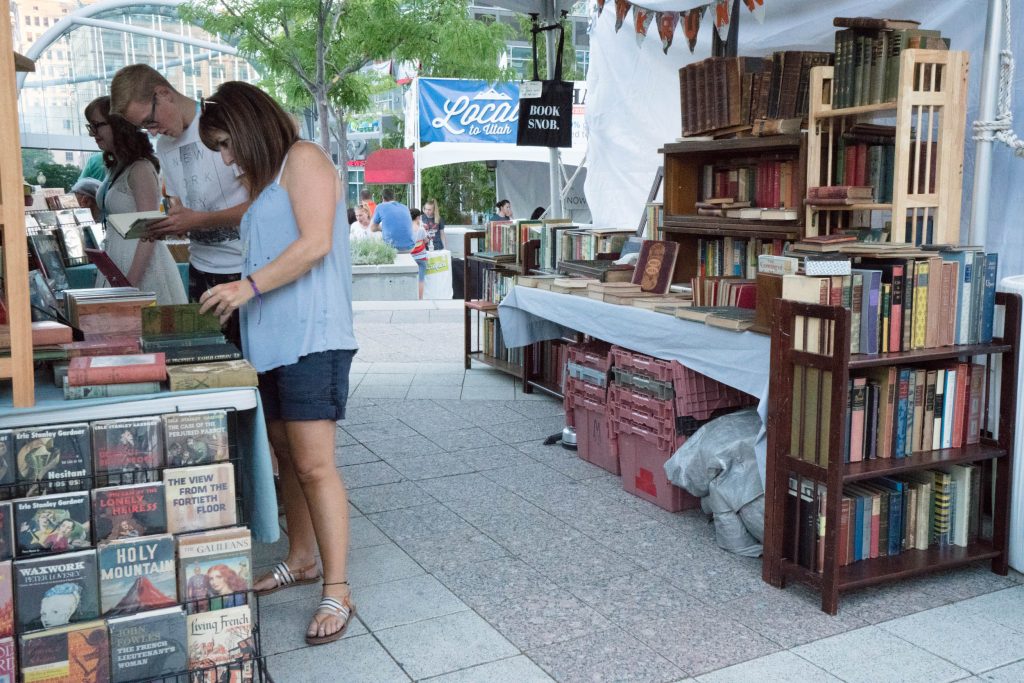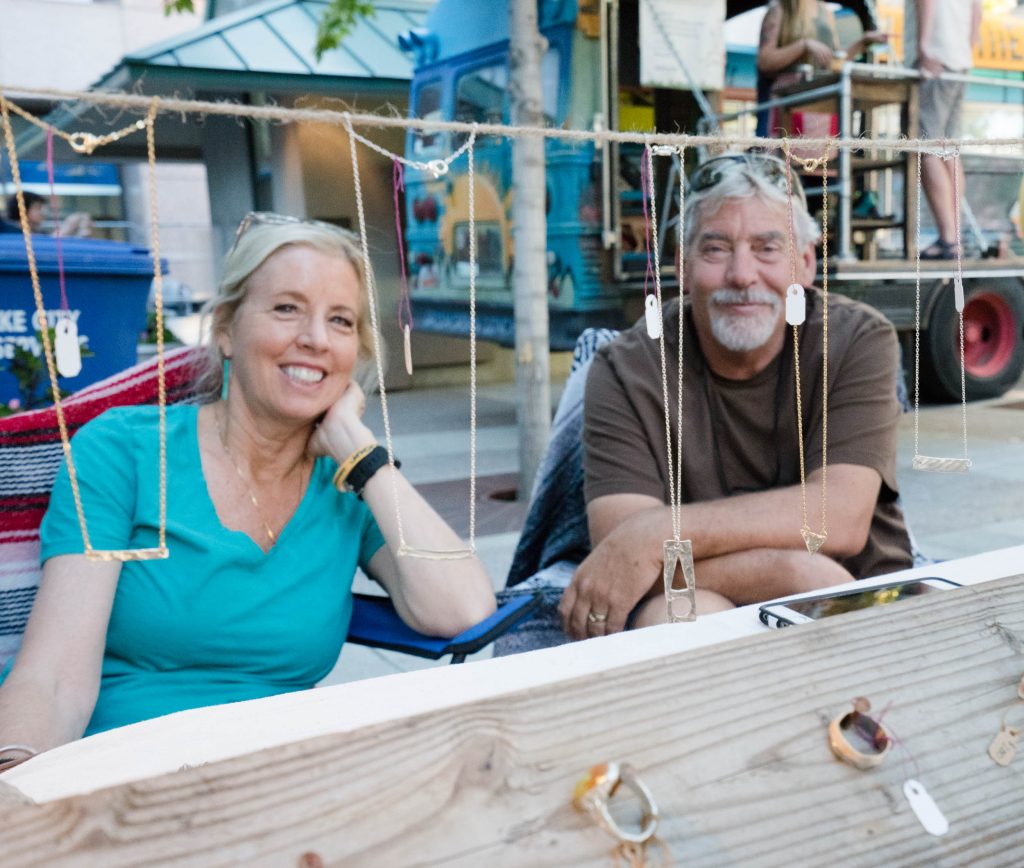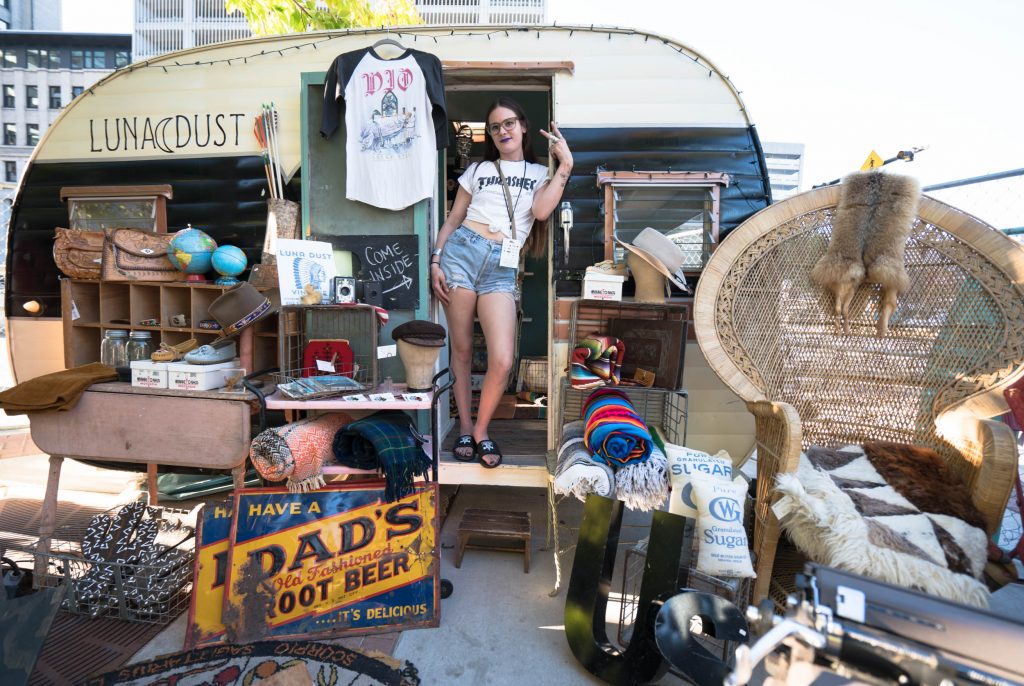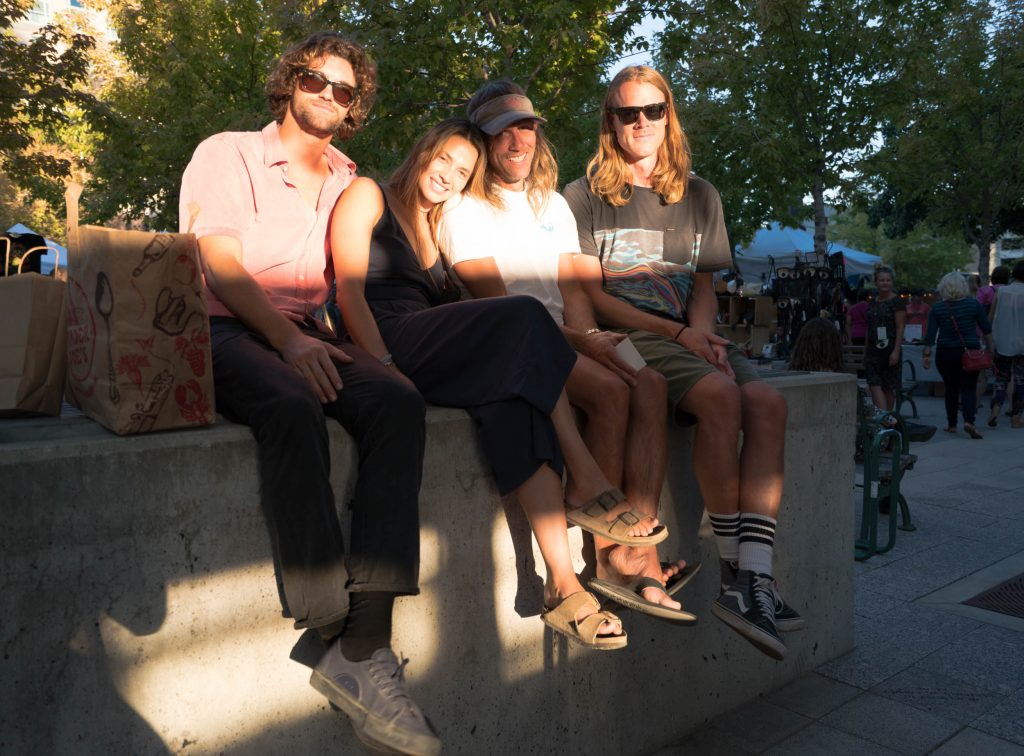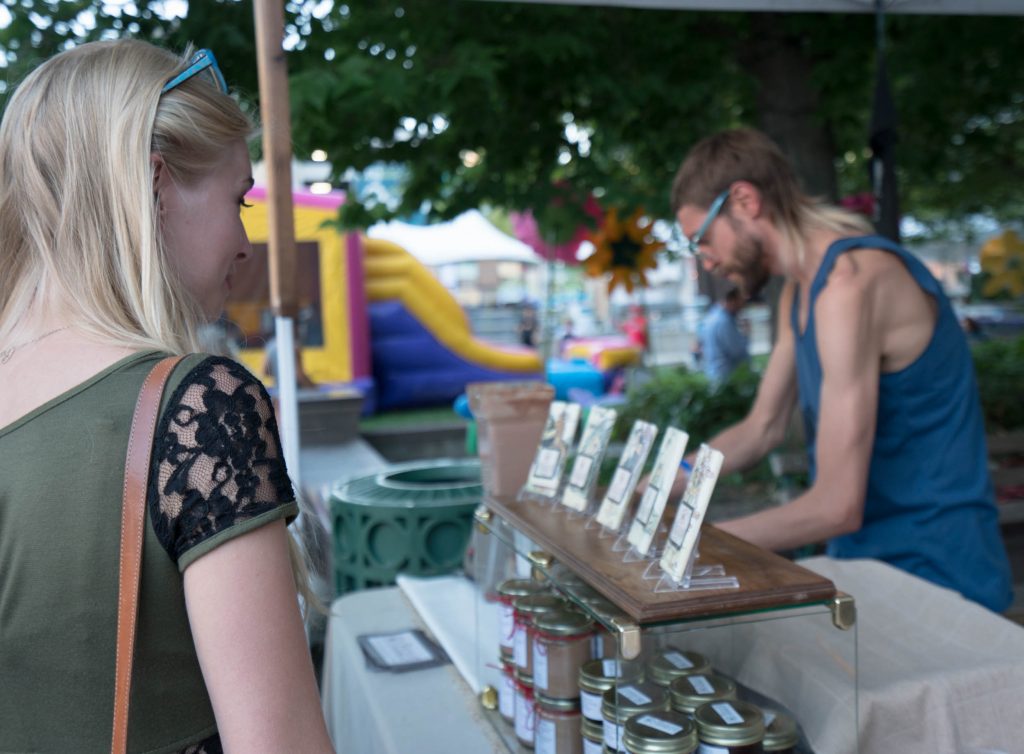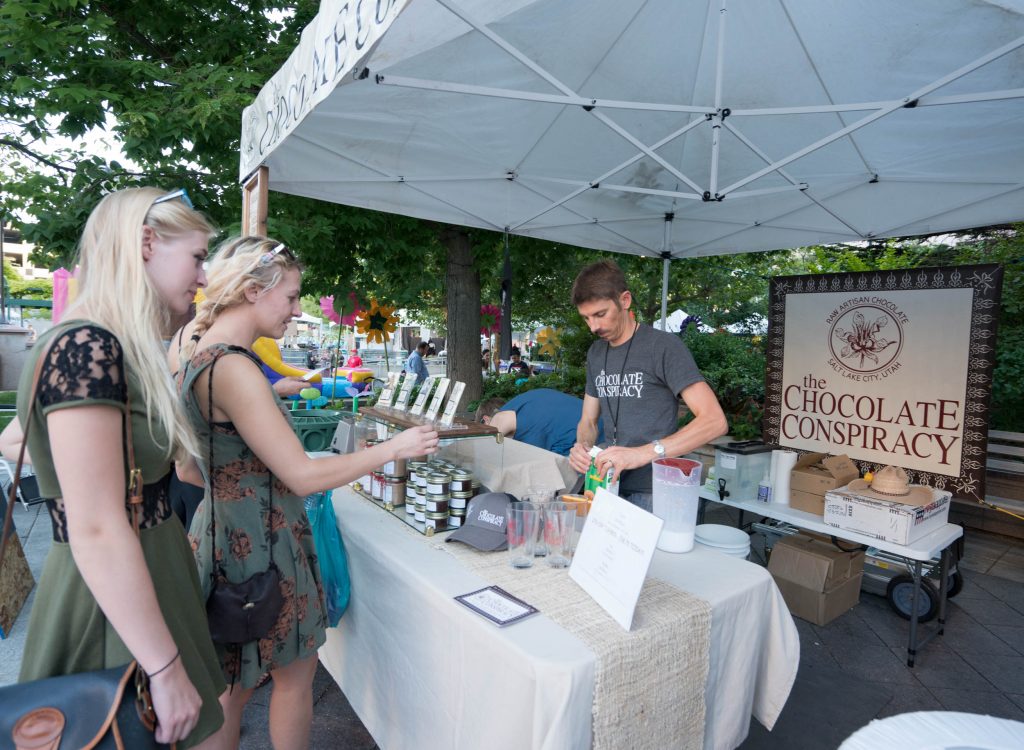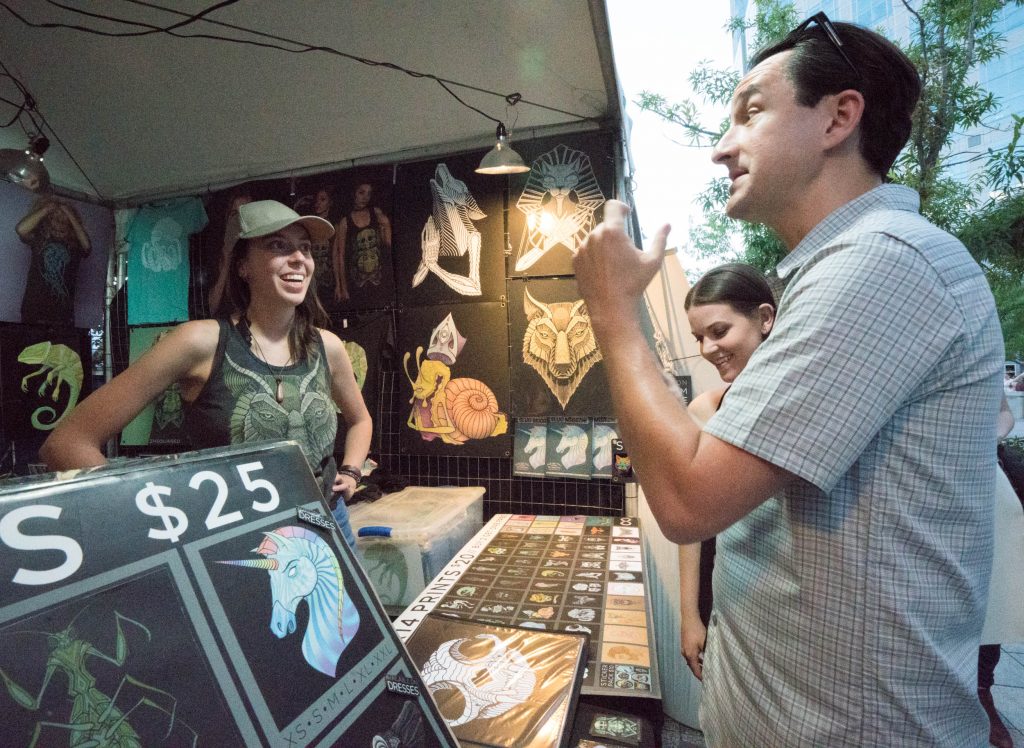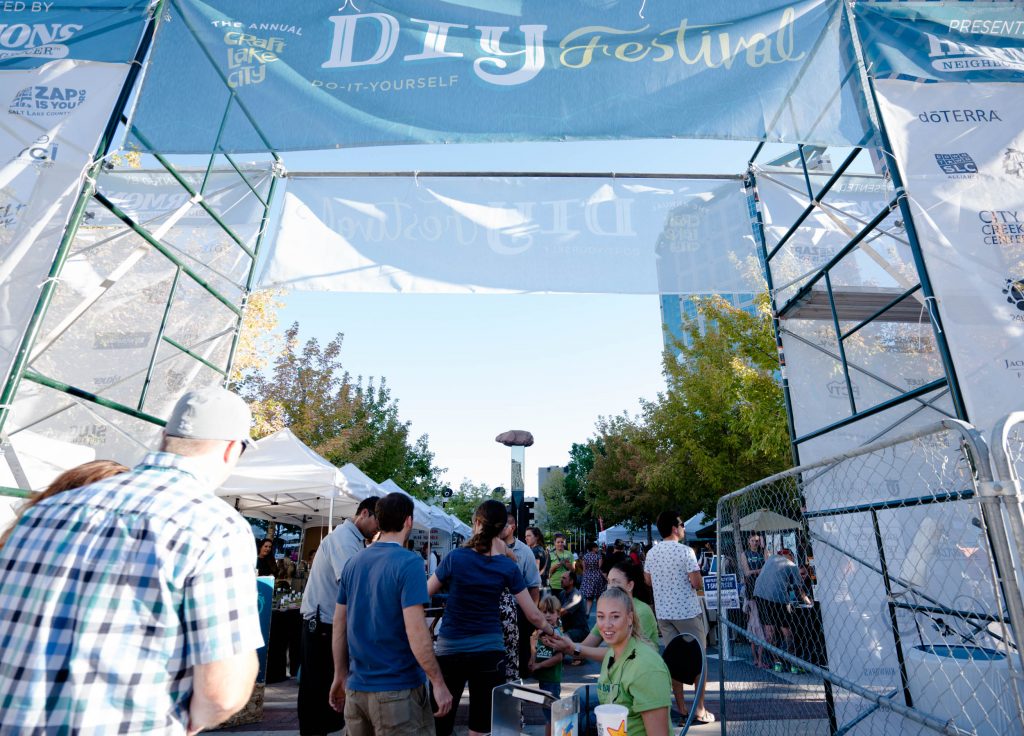I’m the Festival Director for an annual event called The Craft Lake City DIY (Do-It-Yourself) Festival in downtown Salt Lake City, Utah. In order to participate, all makers must create handmade works and reside within the state’s walls. This allows our event to shine a light on our community’s burgeoning craft scene while empowering local creators. Our event, in effect, says them, “There is a market for your work here! You don’t have to move out of state to make money selling your art. Utah is cool.”
Although our local’s-only participation policy excludes talented makers outside Utah, this restriction is what sets our festival apart from other national outdoor markets. We believe that as the word spreads about our event, it will inspire handmade enthusiasts from all over the country to visit Utah and experience Craft lake City’s DIY Festival.
This endeavor grows larger and larger each year, with increased applicants and attendees. As we multiply, so do the business models of our vendors.
Many of our vendors see the potential to expand their customer base by participating in other outdoor markets. I love giving suggestions on where they should start looking and what they should look for.
1) Evaluate the event thoroughly
Who attends? What is the average age and their median income? Read the event description carefully and look over all of the fine print. Is there a FAQs (frequently asked questions) page? Pour over all the information about vendor fees. Will you be able to recoup these costs with your sales?
2) Visualize yourself participating at the event
Is it a good fit for what you create? Do you have inventory that will appeal to the demographic? How will you change your presentation or inventory to fit this event? For example, if you’re vending at comic-con, you may want to bring your superhero line and save your vegetable-themed designs for next week’s farmer’s market booth. Visualize what inventory will be successful at this particular event.
3) Inventory
How much inventory should I make? Will this be a smaller event than I typically do? Is the demographic willing to pay more for my work than my usual marketplace? Should I raise or lower my prices?
4) Talk to past participants
Past participants of an outdoor market can give you tips, tricks and insights that you would otherwise only gain by experience. Ask them as many questions as you can, including this one: “What do you know now, and what do you wish you knew BEFORE you participated?”
5) Travel Time
How will traveling outside of my state or city change my travel time? It is important to think about travel time when vending at a new event. Is there a potential traffic issue? There is nothing worse than traveling to a new city and getting stuck in rush-hour traffic. Locals often offer helpful suggestions about which interstate highways to avoid during which times. How will travel expenses affect my budget?
6) Self-Promotion for Post-Event Sales
Have an action plan in case you run out of inventory. Don’t close your booth three hours before the event ends thus jeopardizing relations with the festival event committee (We do pay attention to this type of behavior, and it does affect if we ask you back). Instead, stay and promote yourself for future online sales. Have business cards and brochures handy. Show pics of your inventory on an iPad or other digital device so you can share your sell out story with new customers. Leverage your online sales post-event by letting everyone know your product was so popular, that you sold out!
7) Booth Staffing
Hiring sales staff can improve your experience at an outdoor market. It allows you the time to take a break and see the event from the perspective of the buyer. This can give you new insight to your business and inspiration on ways to improve.
8) Competition
Competition is good. It forces us to try harder and improve quality. One should consider the competition and adjust appropriately. How many vendors in your category are participating? What sets you apart from them?
9) Online Presence
Does the outdoor market have social media accounts and a website? Are they updating them? When event producers do not update their web presence, it sends a warning sign. Neglecting to have a solid online voice will affect attendance, thus effecting your sales. I would highly reconsider participating in an event that does not provide up-to-date info on the world wide web.
10) Promotion
Does the outdoor market have media partners? Do they run ads? Do they provide their vendors with promotional material to make the event? Do they write press releases and do media appearances? Many times, outdoor-market promoters are looking for willing participants to help with these campaigns. Give them a call or an email and ask if you can help them.
Organizational Support Provided By:
Photos provided by Jo Savage
